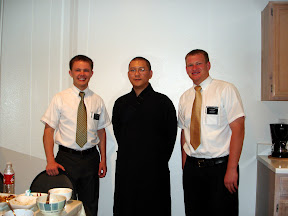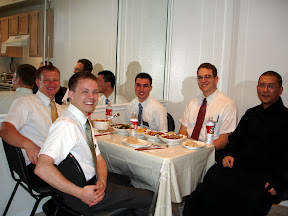We experience many different emotions daily. We are happy one moment and sad the next. Our mood swings. Have you ever really asked yourself why you are experiencing these emotions? Where do they come from? Where do they go?
Let’s take anger for example. Where does anger come from? What are the causes of anger? Have you thought about it? Your first response might be: so-and-so said bad words to me, or so-and-so did something that hurt me. In other words, it is all someone else’s fault. In Buddhism, however, we take a different view.
In Buddhism, we believe, for example, that anger comes from either a hurt ego or an unfulfilled expectation. We are so attached to our “self,” that when someone said or did something bad to us, our ego is hurt. In other cases, we expect certain outcomes. For example, the girlfriend expects the boyfriend to bring her a birthday present but he did not. The girlfriend’s expectation is not met, therefore she is angry. Regardless of the causes of anger, however, when a negative emotion such as anger comes, what can we do to deal with it? I shared with you four ways to deal with anger.
First, because Buddhists believe in reincarnation, therefore just think that I must have done something bad to this person in previous life. I owed this person. What this person did to me now is just a way for me to pay this person back the debt. You will no longer be angry if you believe you are paying back something you owe. If you got angry, then you plant the anger seeds in your relationship. In the future when you two meet, the anger seeds might flourish and you two will be trapped in this bad cycle again and again. Wouldn’t you be glad to pay your debt and be done with it in this life?
Secondly, I talked about the concept of returning an unwanted gift. When someone gives you a gift, if you don’t accept it, then they have to take it back. Think of the bad words the other person said to you as an unwanted “gift.” If you simply do not accept the gift, then you are unaffected by the bad words. It is very interesting that, say someone is trying to provoke you, trying to make you mad. However, if you do not accept the “gift,” and are not mad, usually it is the other person who is really mad now.
The third way to deal with anger is to temperately transfer your emotion to something else, especially when the anger is too overwhelmed for you to handle at this moment. Go shopping, go to a movie, go to a restaurant, do whatever you like to do. However, if you can, try to meditate. Count your breath and pull yourself back to a tranquil state. After all, breath counting is a technique that can be carried anywhere, anytime, and it costs nothing.
Lastly, I talked about observing “emptiness.” In Buddhism, we believe all phenomena are created as a result of many conditions. If you analyze the causes of your anger, you will realize that anger itself does not have its own “self.” (therefore the concept of emptiness) Think about it. A moment ago someone said a bad word to you. That moment has since passed away. However, you are still clinging to that moment and creating anger in yourself. Remember a couple of weeks ago I shared with you the story of two monks crossing the river. The younger monk was still attached to a phenomenon that had long gone. If the phenomenon is gone, why do we still punish ourselves by continuing thinking about it?
A young lady always got angry for trivial matters. She went to ask a Zen master how she can deal with her emotion. After listening to her complains, the Zen master said nothing. The Master led her to a meditation room then he locked her in it.
At first, the lady was very angry. She kicked and hit the door. She shouted, yelled and cursed. However, no one paid attention to her. Eventually, she calmed down. The Zen master stood outside and asked, “Are you still angry?” “No, I only blame myself to decide to come here, only to have such a hard time.” “If you can not forgive yourself, how could you forgive others? How could you have peace in your mind?” Then the Zen mater walked away.
After a little while, Zen master came back and asked, “Are you still angry?” “No” “Why?” “Even if I were angry, there is no way out of here.” “You still have anger in your mind, you just temporarily suppress it. The anger would burst out violently later.”
The third time, Zen mater came to talk to her. The lady said, “I am not angry now, because it is not worth it.” The Zen master said, “You still think about whether being angry is worth something. You are still angry.”
“What is anger? The lady asked the Master, then she reached enlightenment.
Why are we angry? Anger is something dumps from someone else but you willingly accept. It gives you a stomachache if you swallow it but if you don’t pay attention, it disappears. Being anger is to use someone else’s mistake to punish yourself. Life is too short to waste our time in being angry.
Meditation helps eradicate our negative emotions such as greed, anger, and ignorance by being true to yourself, by gaining true understanding about yourself. Once we have the purified mind, we will not be influenced and controlled by desires, wants, and all the emotions. We live in a fast paced society where we are always running around, trying to do everything. We give very little time to ourselves. Meditation gives us the awareness and mental power necessary to face everyday life with tranquility. It is extremity important that we meditate every day. When we encounter emotions, we then can quickly go back to this peaceful state of mind.
There are only four more classes to go. Continue the practice, patiently and persistently. Practice makes perfect!











